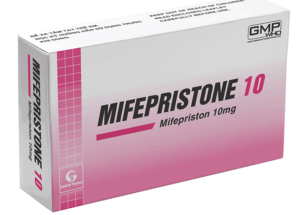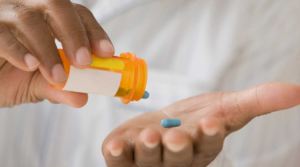- Roll, flip, spin: Stanford develops amphibious millirobot for fantastic voyage (fiercepharma.com)Stanford engineers develop tiny robots to bring health care closer to precisely targeted drug delivery (news.stanford.edu)
A Stanford University team has created the amphibious all-terrain vehicle of the drug delivery world. The researchers designed the millimeter-scale robot to roll, flip and spin past obstacles and through liquids to navigate complex biomedical environments...Multiple papers have described the creation of wirelessly operated millimeter-scale origami robots that can move through narrow spaces and change shape to complete specific tasks. Potential applications for the robots include targeted drug delivery, in which context the vehicles would carry a payload for release at a specific site...Operated magnetically, the millirobot is designed to adapt itself to the environment, autonomously switching between rolling and flipping to get over some obstacles. Applying a magnetic field causes the millirobot to jump over bigger barriers...READ MORE
- FDA enables abortion via telemedicine by lifting restrictions on pill (healthcareitnews.com)
The revised regulations mean providers can prescribe and mail abortion medication to patients without an in-person appointment in more than half the country...The U.S. Food and Drug Administration...modified its restrictions on mifepristone, one of the medications used in abortion. The new regulations enable abortion via telemedicine in more than half of the country...The permanent modification of the requirement means that abortion providers in many states will be able to send medication to patients via mail-order pharmacy, bridging some access gaps in places with few in-person clinics or burdensome multi-appointment waiting period rules...some researchers and advocates have noted that the FDA left in place some certification components for providers and pharmacies, as well as patient agreements...READMORE
- Is mRNA the Future of Drug Development? (biospace.com)
Before the Pfizer-BioNTech COVID-19 vaccine authorization, there were no mRNA therapies approved anywhere in the world. The idea of using messenger RNA as a way to get your body to be the drug manufacturer has been around for some time, but only in recent years has it become practical. And it was the COVID-19 pandemic that provided the opportunity for the technology to push ahead...In terms of cancer...BioNTech has two types of mRNA vaccines for cancer. “First, we have our off-the-shelf vaccines, where we’ve identified molecular features of tumors that are shared by many patients...By targeting these molecules, you can fight the cancer without getting collateral damage to healthy cells.”...“Second, we have highly personalized vaccines. We identify cancer mutations that are unique to every patient...We biopsy the tumor, sequence it, and design a unique, individualized vaccine for each patient.”...READ MORE
- FDA advances data, IT modernization efforts with new office of digital transformation (worldpharmanews.com)
...the U.S. Food and Drug Administration announced the reorganization of the agency's information technology, data management and cybersecurity functions into the new Office of Digital Transformation...The office has been realigned to report directly to the FDA commissioner, elevating the office and its functions to agency-level. This reorganization will advance the agency’s information technology transformation with improved data and IT competencies that improve agency operations to support the public health mission...READ MORE
- Pfizer asks hourly staffers to return overpayments in aftermath of vendor’s cyberattack: reports (fiercepharma.com)
In December, a ransomware attack struck Ultimate Kronos Group, a vendor that Pfizer uses to track work time and pay out hourly staffers...Employees were under- and overpaid as a result...Now, the drug behemoth is repaying those who were shortchanged—but it’s also asking overpaid staffers to return their surplus cash...Pfizer isn’t the only corporation dealing with the fallout of last year’s cyberattack. Tesla and PepsiCo have filed a class-action lawsuit that contends Ultimate Kronos Group owes damages because it was negligent in guarding against an attack...READ MORE
- Alexa is finding a voice in healthcare. Cedars-Sinai, Boston Children’s sign on for new Amazon smart hospital service (fiercehealthcare.com)
Amazon is launching a new service for hospitals that will embed its voice technology deeper into clinical settings at scale...As part of Alexa Smart Properties, the service will simplify how hospitals and senior living facilities deploy and manage Alexa-enabled devices across their properties...Using Amazon Alexa devices in hospital rooms, patients can keep in touch with their families, connect with care team members, easily access news and information and play music, according to the company. Patients can ask Alexa for things they need—"Alexa, tell my nurse I need a pillow." The use of artificial intelligence to interpret patient intent enables the message to be sent to the appropriate care team member using existing hospital communication systems..."Voice is intuitive for patients, regardless of age or tech-savviness,"...READ MORE
- NowRx turns to equity crowdfunding to raise $73M for expansion, tech investment (fiercehealthcare.com)
...Silicon Valley startup NowRx decided to avoid venture capital dollars...The online pharmacy aims to raise $73 million series C funding through SeedInvest, an equity crowdfunding platform...Once completed, the series C round will bring the company’s total funding to more than $100 million...The startup, which provides same-day and same-hour prescription medication delivery and telehealth services, aims to use the funds to expand into additional territories, and accelerate the technology roadmap for its proprietary pharmacy management software and logistics technology...The raise comes on the heels of strong growth as the company charted $13.4 million in revenue in 2020...READ MORE
- Fierce JPM Week: How 23andMe plans to harness its massive database to further its ambitions in drug development (fiercehealthcare.com)
Drug development is expensive, can take years to complete and doesn't guarantee a novel therapy for treating disease...But consumer genetic testing company 23andMe is forging ahead to leverage its massive database of genetic data for research and to make and sell its own therapies...Using genetic data based on the company's 12 million genotype customers and billions of phenotypic data points gives 23andMe a distinct competitive advantage for its therapeutics business, Kenneth Hillan, 23andMe’s head of therapeutics, said..."We talk about it as our secret power. It really is that statistical power, the size and scale of our databases, and using genetics to see things in terms of drug targets within diseases that others just can't see," he said...READ MORE
- Payers, Providers and PBMs: Embrace Data Liquidity to Improve Medication Adherence (healthcareitnews.com)
Sharing real-time patient benefit and eligibility information with providers at the point of prescribing improves medication access and, ultimately, patient outcomes...To help patients access their prescribed medications during office closures due to the pandemic, many health plans relaxed or waived medication regulations, such as prior authorization and refill-too-soon orders...Despite this temporary relief, many patients still experienced delays getting their prescriptions filled...Solutions such as real-time prescription benefit, electronic prior authorization and intelligent pharmacy workflows can help reduce administrative and benefit barriers contributing to these delays – and improve medication adherence along the way...READ MORE
- Ransomware attacks impact patient care, including increased mortality rates, report finds (fiercehealthcare.com)
Nearly a quarter of healthcare providers report increased mortality rates following ransomware attacks...Ransomware impacts patient care in more ways than one, with 70% or more of healthcare organizations reporting a longer length of stay or delays in procedures that lead to poor outcomes, according to a Ponemon Institute report...A majority of organizations also report an increase in patient transfers, while more than a third report increased complications from medical procedures...Healthcare delivery organizations are under siege, as 67% have been victims of ransomware attacks. One-third of those said they experienced two or more...READ MORE










